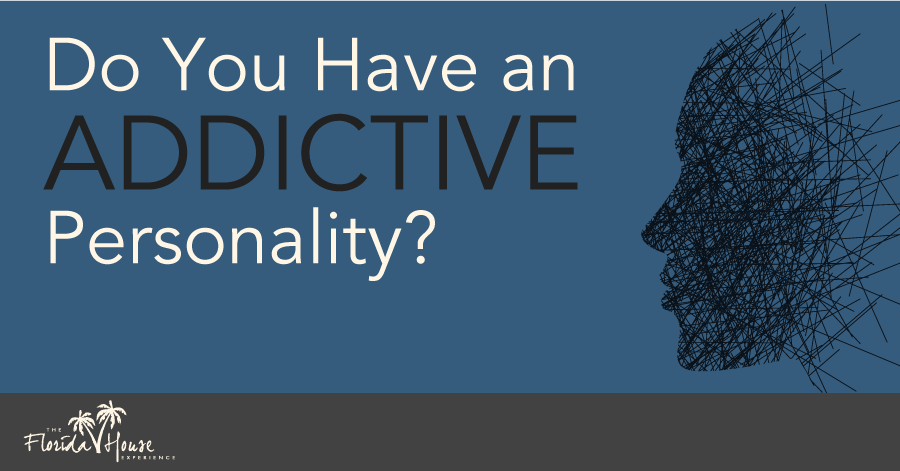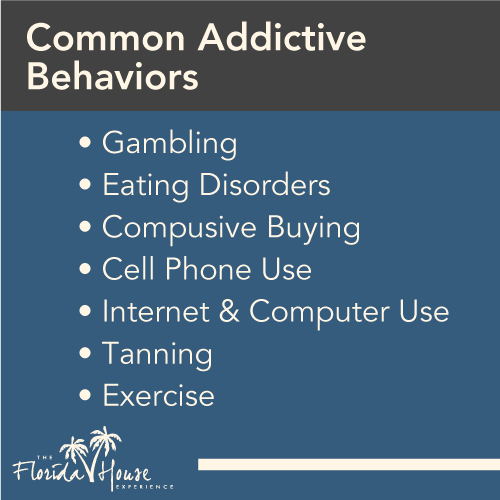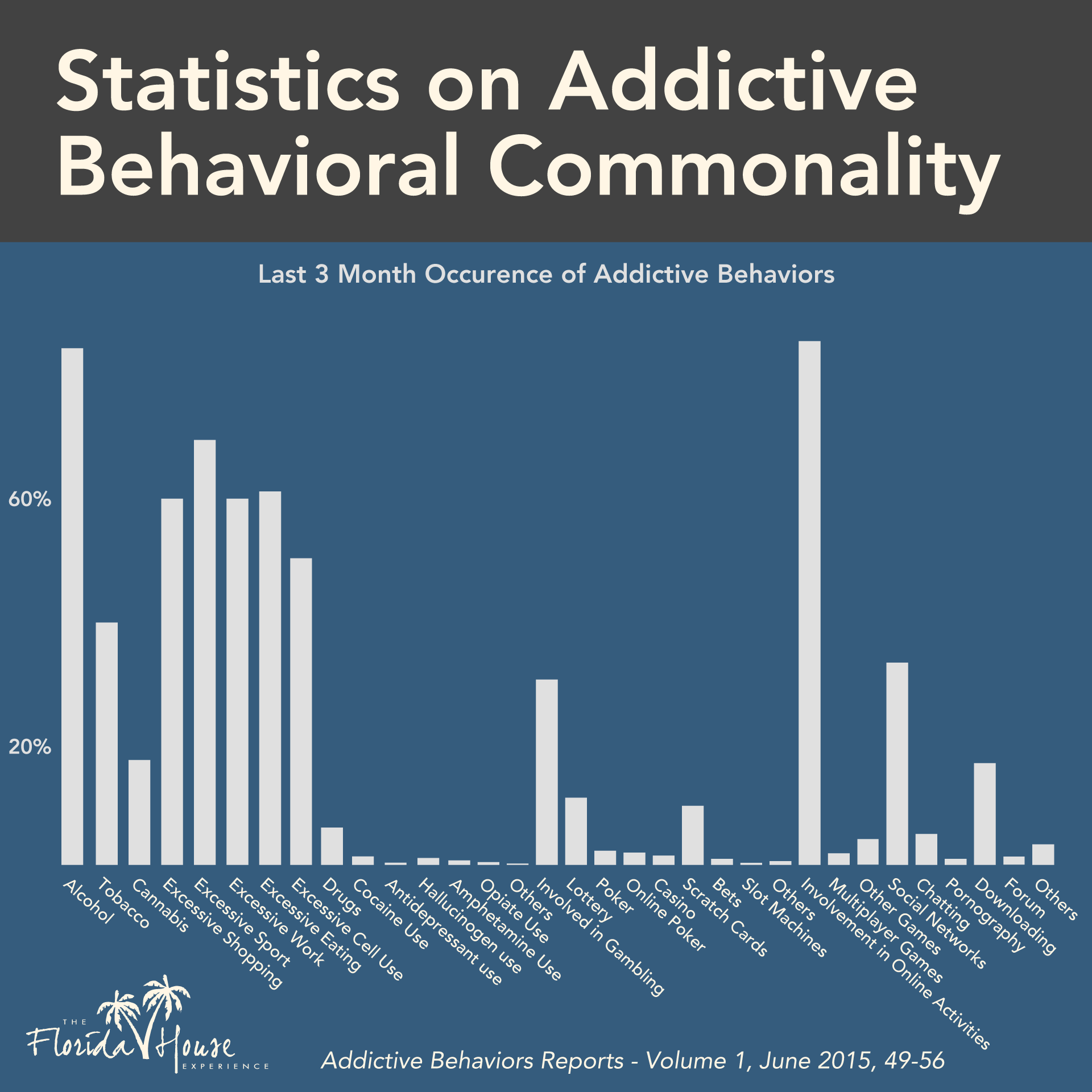
You may have heard that some people are more ‘addiction prone’ than others. Is it possible that identifying an individual at risk of becoming addicted to drugs and alcohol could be done earlier by noticing addictive personality traits? Is the ‘addictive personality’ a real thing, or is it just a casual expression?
What is an Addictive Personality?
 “Addictive personality” is a personality type that leads the individual to become addicted to different substances or activities more so than the average individual. They tend to be individuals that, once they begin on any type of endeavor or begin using any type of substance (narcotic or not), they become totally enveloped in it to a level beyond what might otherwise be seen as a passion. According to some research, there are five primary behaviors that indicate a likelihood for that individual to have an addictive type of personality:
“Addictive personality” is a personality type that leads the individual to become addicted to different substances or activities more so than the average individual. They tend to be individuals that, once they begin on any type of endeavor or begin using any type of substance (narcotic or not), they become totally enveloped in it to a level beyond what might otherwise be seen as a passion. According to some research, there are five primary behaviors that indicate a likelihood for that individual to have an addictive type of personality:
- Impulse Control Issues – Individuals found to suffer from an addictive personality tend to show signs of poor impulse control. These individuals may seem to make more emotional or reactionary decisions when it comes to making purchases, eating, and using drugs or alcohol, among others. In many ways, it would appear that they have a difficult time doing anything in moderation and more often lean toward using in excess. Those who are obese tend to have a difficult time moderating their food intake or, simply cannot help themselves when it comes to indulging in sweets. However, it’s important to take care in understanding the difference between someone who, using the same example, enjoys sweets as opposed to a person who simply cannot control the amount of food that they eat. A person who eats a cupcake at a party may not necessarily have an addictive personality, though another individual who consumes three or four at a time might.
- Adventurous or Risk-Taking –It has been observed that those who have addictive personalities tend to be adventurous and open to engaging in higher risk activities. In many cases, this is due to the adrenaline high involved in taking such action, similar to someone addicted to drugs who may carelessly try any type of substance available without question. We may see these types of personalities in those that drive excessively fast and dangerously, or frequently jump out of planes, or go bungee jumping. Risk taking in and of itself is not indicative of an addicted personality, but those who do these things in excess or with little regard for the potential consequences may have some form of an addictive personality.
- Few or No Long-Term Goals – Typically someone with an addictive personality will be more impulsive and do things seemingly on a whim. As a result, they live life moment-to-moment and tend not to look too far into the future. They tend to get involved in activities quickly and develop an immediate obsession with them only for it to fizzle out over a period of time. Those with long-term goals tend to be more disciplined in what they do in accordance with that goal, which is not a trait of someone with an addictive personality.
- Being Apathetic – Individuals that demonstrate apathetic behavior tend to be more prone to having an addictive personality. Apathy is a personality trait of someone who shows little emotion or has little interest in or concern for much of anything. Apathetic individuals tend to show little regard for their own well-being and may indulge in whatever gives them some semblance of excitement in the moment. In this respect, they are more prone to become addicted to substances or activities that can help occupy or distract their minds, especially in abusing drugs and alcohol.
- Being Related to an Addictive Personality –Addiction has been found to be considerably genetic and often correlates amongst relatives who suffer from the same affliction. If you or a relative deal with substance abuse or mental health disorders, it is not uncommon for another member of the family to exhibit similarly addictive behavior. If it is you who struggles with addiction, you are more likely to be able to identify an addictive personality in your child and observe if their behavior is similar to your own. You will also likely have a better grasp on the differences between someone with a sharp interest in something versus some with an addictive mentality towards substances or activities.

If You Have an Addictive Personality
If you or someone you love is showing signs of having an addictive personality, it is important to address the issue immediately. We encourage you to first reach out to a professional with experience in this issue before doing it yourself, as addressing a problem seriously that may not in fact exist can be harmful to the relationship.
The top five behavioral traits of those with addictive personalities are having impulse control issues, adventurous or risk-taking behaviors, few or no long-term goals, being apathetic and having a genetic relationship with someone who has an addictive personality. If you or someone you know shows any combination of these behaviors, there is a greater likelihood that they are prone to addictive behavior. Nonetheless, being able to differentiate between someone who enjoys a few drinks, eating a few extra cookies, or spending time at the gym and someone who may actually have an addictive personality is very important.
Having an addictive personality does, however, provide a good indication that the individual could be prone to developing an alcohol or substance abuse problem. Those who have difficulty controlling their involvement in dangerous activities will likely suffer the same addiction to the high achieved from alcohol or drugs. Being able to identify these personality traits before they are directed to alcohol or drugs would be ideal, and similar therapeutic strategies can be applied or incorporated into the individual’s daily activities to prevent any further danger from its evolution. Speaking to a professional with experience working with those suffering from alcohol and substance abuse issues are your best resource for confirming if your suspicion is true or unfounded.
Get Help Today
If you are struggling with drug or alcohol addiction and want to learn more about a way out, call Florida House today at (833) 596-3502. Our compassionate team of counselors is standing by 24/7 to take your call. Do not hesitate to reach out now for answers to your questions.






